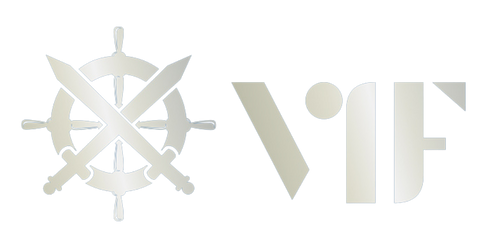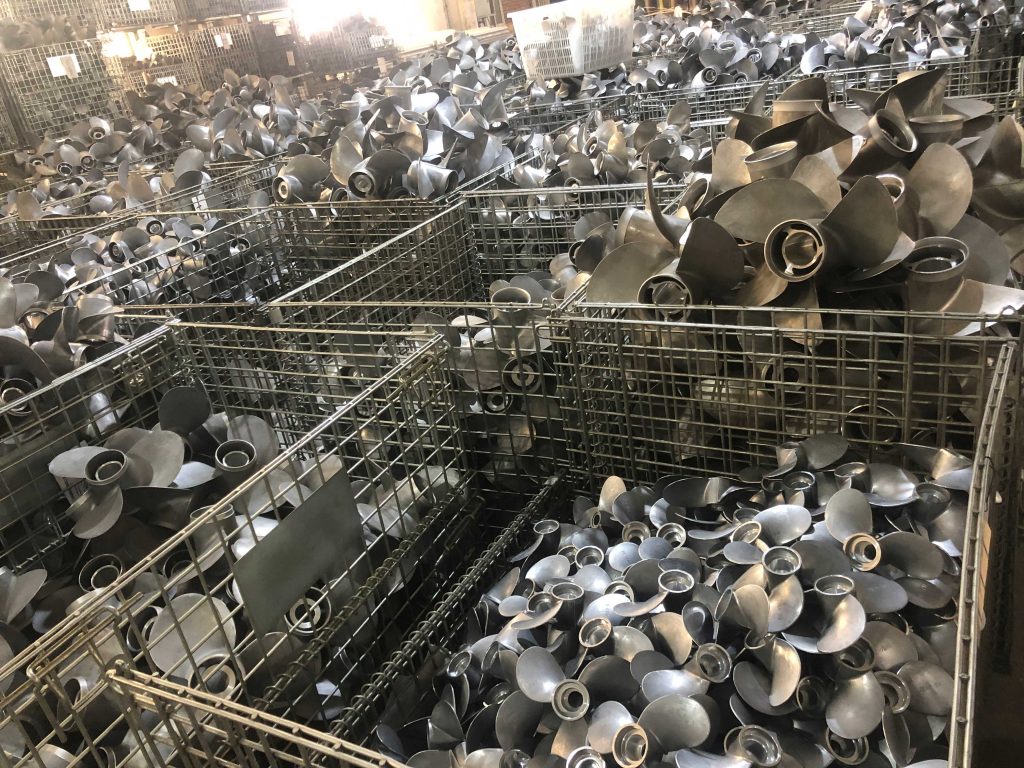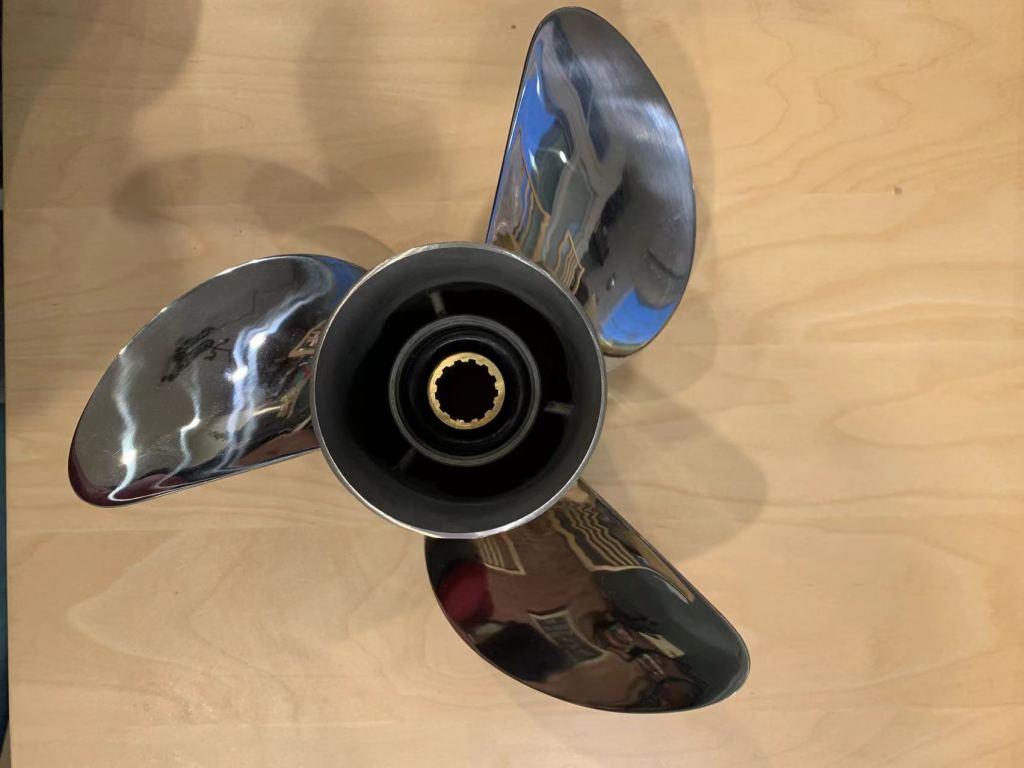Smooth Sailing: Measures And Importance To Avoid Propeller Collision Accidents
- Safety measures to avoid propeller collision accidents.
- How to properly control the propeller in an accident.
- What are the common ship accidents that can be avoided.
- Matters necessary to ensure the safety of the ship.
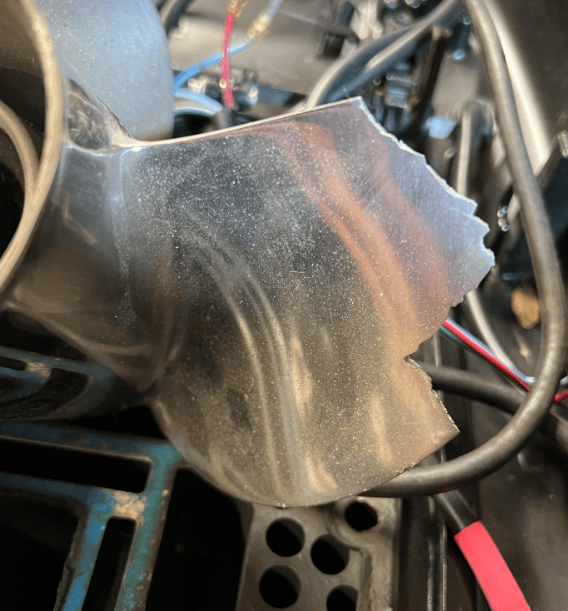
If your propeller is damaged, you may need to replace it with a new stainless steel or aluminum propeller. After reading this article I will tell you how to avoid these accidents.
Propeller Strike Accidents Can Be Avoided By Following These Safety Precautions
Maintain a proper lookout: Always keep an eye out for swimmers, divers, and other watercraft in the vicinity. Be especially cautious in crowded areas and near beaches.
Slow down in congested areas: Reduce your speed when approaching marinas, swimming areas, and other crowded places. This will give you more time to react if someone unexpectedly enters the water.
Use engine kill switch lanyard: Attach the engine kill switch lanyard to your wrist or life jacket. This ensures that the engine stops running if you fall overboard, preventing the boat from continuing to move and potentially causing propeller strikes.
Educate passengers: Make sure all passengers are aware of the dangers associated with propeller strikes and instruct them to stay away from the stern of the boat while the engine is running.
Install propeller guards: Consider installing propeller guards on your boat. These devices can help prevent direct contact between the propeller and people or objects in the water.
Be cautious when reversing: When reversing, use extreme caution and ensure that there are no people or obstacles behind the boat. Propeller strikes are more likely to occur when reversing due to reduced visibility.
Follow boating regulations: Familiarize yourself with and adhere to local boating regulations and guidelines. These rules are in place to ensure the safety of everyone on the water.
Take a boating safety course: Enroll in a boating safety course to improve your knowledge and skills. These courses cover various safety aspects, including propeller strike prevention.
How To Properly Operate a Ship’s Propeller To Avoid Accidents
To properly operate a ship’s propeller and avoid accidents, follow these guidelines:
Familiarize yourself with the ship’s controls: Understand how to operate the throttle, gearbox, and propeller pitch control (if applicable) to ensure smooth and controlled propulsion.
Maintain a safe speed: Observe speed limits and adjust your speed according to the prevailing conditions, such as visibility, traffic, and water depth. Excessive speed can make it difficult to maneuver and increase the risk of accidents.
Use caution when maneuvering: When making turns or changing direction, do so gradually and avoid sharp or sudden movements. This allows the propeller to maintain a safe distance from people or objects in the water.
Be aware of your surroundings: Constantly monitor the area around your ship for other vessels, swimmers, divers, or any potential obstacles. Use radar, sonar, and other navigational aids to enhance your situational awareness.
Communicate effectively: Use VHF radio or other communication devices to maintain contact with other vessels, harbor authorities, or port control. This helps to coordinate movements and avoid potential collisions.
Use proper anchoring techniques: When anchoring, ensure that the anchor is securely set and that the chain or rope is properly stowed. This prevents the propeller from getting entangled in the anchor or anchor line.
Regularly maintain and inspect the propeller: Keep the propeller and associated components in good condition, ensuring that they are free from debris, damage, or fouling. Regularly inspect the propeller for any signs of wear or corrosion.
Follow safety protocols: Adhere to all safety procedures and guidelines set by your company or regulatory authorities. This includes wearing appropriate personal protective equipment, such as life jackets, when operating near the propeller.
Seek proper training and certification: Obtain the necessary training and certification to operate a ship’s propeller safely. This ensures that you have the knowledge and skills required to handle the vessel and its propulsion system effectively.
Remember, proper operation of a ship’s propeller is crucial for the safety of everyone on board and in the surrounding water. Always prioritize safety and follow best practices to avoid accidents.
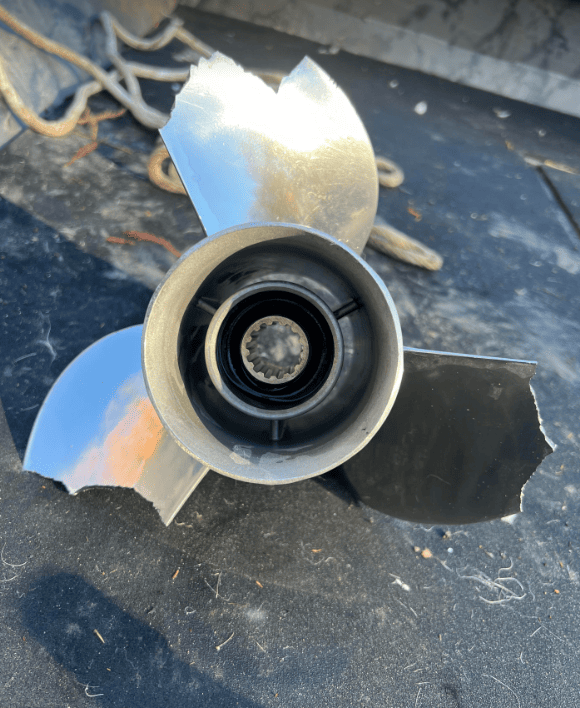
What Are The Common Ship Accidents That Can Be Avoided
There are several common ship accidents that can be avoided by following proper safety protocols and adhering to industry best practices. Some of these accidents include:
Collisions: Collisions with other vessels, stationary objects (such as piers or buoys), or even natural formations (like rocks or reefs) are a significant risk. To avoid collisions, maintain a proper lookout, use navigational aids, follow traffic separation schemes, and communicate effectively with other vessels.
Groundings: Running aground can occur when a ship unintentionally comes into contact with the seabed. Proper navigation, accurate charting, maintaining a safe speed, and regularly monitoring the ship’s position using GPS or other navigational systems can help prevent groundings.
Fires and explosions: Fires and explosions can be caused by various factors, including electrical faults, fuel leaks, or improper handling of hazardous materials. Regular maintenance of electrical systems, proper storage and handling of flammable materials, and adherence to safety protocols can minimize the risk of such incidents.
Machinery failures: Ship machinery failures, such as engine breakdowns or propulsion system malfunctions, can lead to accidents or loss of control. Regular maintenance, routine inspections, and prompt repairs can help prevent machinery failures and ensure the safe operation of the vessel.
Capsizing or foundering: Capsizing occurs when a ship overturns, while foundering refers to sinking due to flooding or structural failure. Proper stability calculations, adherence to load limits, and effective ballasting and de-ballasting procedures can prevent these accidents.
Crew accidents: Accidents involving crew members, such as slips, trips, falls, or injuries during routine operations, can be avoided through proper training, the use of personal protective equipment, and maintaining a clean and organized working environment.
Pollution incidents: Oil spills or other forms of pollution can occur due to human error, equipment failure, or non-compliance with environmental regulations. Strict adherence to pollution prevention measures, proper handling and disposal of waste, and regular training of crew members can help prevent such incidents.
Man overboard: Falling overboard is a serious risk for crew members, and prompt rescue operations are crucial. Proper use of safety equipment, such as harnesses and lifelines, continuous monitoring of crew members’ location, and regular safety drills can help prevent man overboard incidents.
By implementing preventive measures, conducting regular safety training, and maintaining a strong safety culture onboard, these common ship accidents can be significantly reduced or avoided altogether.
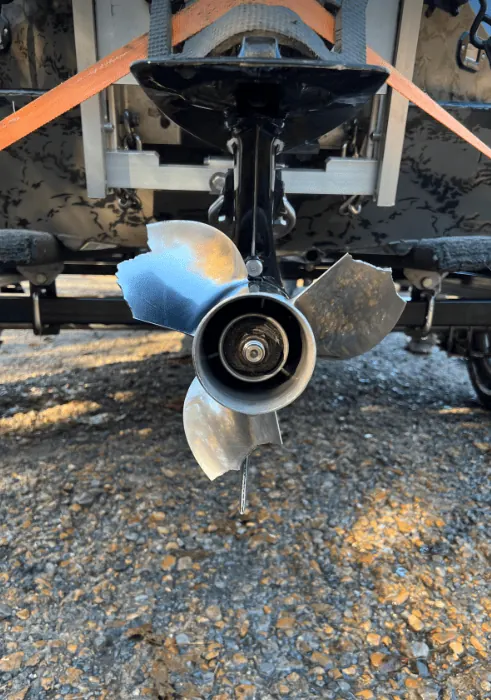
How To Ensure The Safety Of The Ship
Ensuring the safety of a ship involves taking a series of measures and following standard operating procedures. Here are some suggestions on how to ensure the safety of a ship:
Compliance with regulations: Understand and comply with the regulations and requirements set by the International Maritime Organization (IMO) and national maritime authorities. These regulations cover ship construction, operation, maintenance, and safety requirements.
Qualified crew: Ensure that the crew on board holds appropriate certificates and training, possessing the knowledge and skills required for operation and responding to emergencies.
Regular maintenance: Conduct routine inspections of the ship’s systems and equipment to ensure their proper functioning. This includes the engine, electrical systems, steering systems, firefighting equipment, etc.
Maintain good ship stability: Understand the stability characteristics of the ship and ensure compliance with weight and balance limits when loading cargo. Follow proper cargo loading and unloading procedures to maintain ship stability and safety.
Use appropriate navigation equipment: Ensure that the ship is equipped with suitable navigation equipment such as radar, GPS, electronic charts, etc. These devices provide accurate position information and help avoid accidents such as collisions or groundings.
Follow safe operating procedures: Establish and adhere to safe operating procedures and standard operating procedures. This includes procedures for ship navigation, anchoring, cargo handling, and emergency response.
Conduct ship safety drills: Regularly conduct ship safety drills, including fire drills, lifeboat launching drills, man overboard drills, etc. This helps improve the crew’s emergency response capabilities.
Monitor weather and sea conditions: Keep a close eye on weather and sea conditions to ensure appropriate actions are taken by the ship in adverse conditions, such as slowing down, altering course, or seeking safe harbors.
Enhance communication and coordination: Maintain good communication with other ships, port authorities, and maritime traffic control centers. Share timely information about the ship’s position, intentions, and any special circumstances to ensure safe coordination with other vessels and shore-based entities.
Continuous improvement and learning: Regularly assess the ship’s operations and safety management, learn from accidents and incident investigations, and continuously improve the ship’s safety and operational efficiency.
By following these measures and establishing a strong safety culture, the safety of a ship can be ensured, minimizing the occurrence of accidents.
Conclusion About How Can Propeller Strike Accidents Be Avoided
In conclusion, propeller strike accidents can be avoided by following proper boating safety measures and taking necessary precautions. Some specific measures that can be taken include:
1.Educating boat operators: Proper training and education on boating safety, including propeller awareness and safe operating techniques, can help prevent accidents.
2.Installing propeller guards: The use of propeller guards can help reduce the risk of propeller strike accidents by creating a barrier between the propeller and individuals in the water.
3.Implementing safety protocols: Establishing and enforcing safety protocols, such as maintaining a safe distance from swimmers and implementing no-wake zones in crowded areas, can minimize the chances of propeller strike accidents.
4.Using kill switches: Ensuring that kill switches are used and properly functioning can prevent accidents in case the boat operator falls overboard, automatically stopping the engine and reducing the risk of propeller strikes.
Remember, propeller strike accidents can be catastrophic, so it’s crucial to prioritize safety and take all necessary precautions to avoid such incidents.
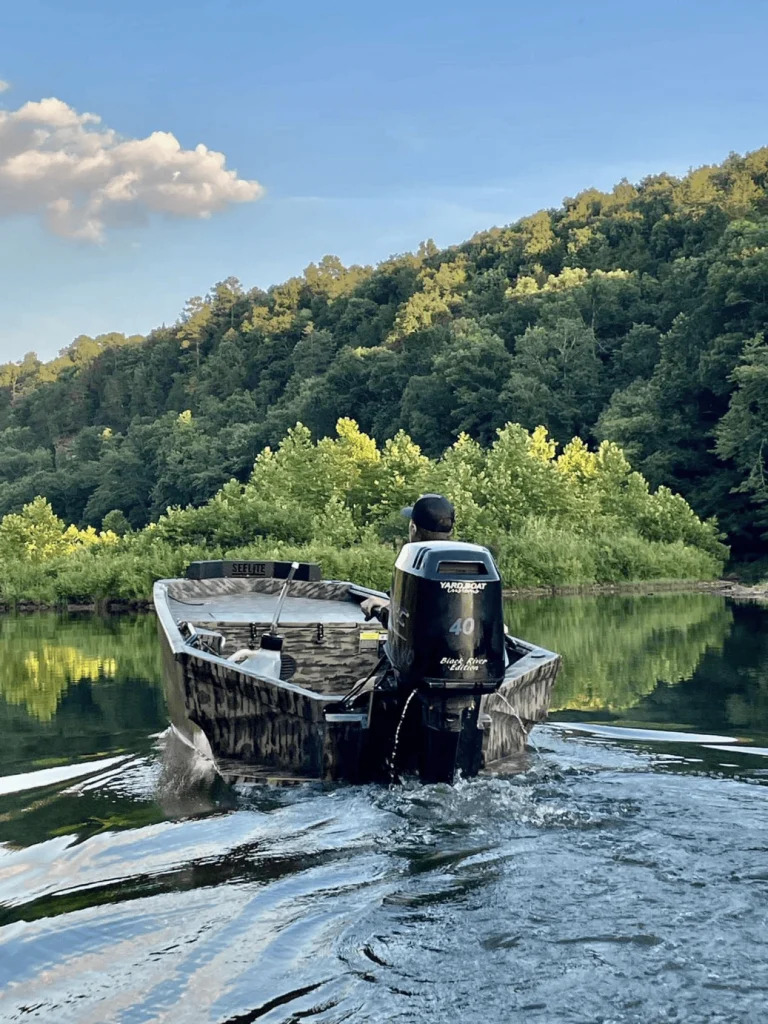
FAQ about How Can Propeller Strike Accidents Be Avoided
What is a ship propeller strike accident, and why is it dangerous?
A: A ship propeller strike accident occurs when a vessel’s propeller strikes a person or object in the water. It is dangerous due to the high speed and force of the rotating propeller, which can cause severe injuries, fatalities, and extensive damage to both the vessel and the object/person struck.
How can I prevent ship propeller strike accidents while swimming near a boat?
A: To prevent such accidents, always stay clear of the stern and sides of the boat, where the propeller is located. Maintain a safe distance from the vessel and its propeller at all times, and be aware of the boat’s movements.
What safety measures should boat operators follow to avoid propeller strike accidents?
A: Boat operators should always assign a dedicated lookout to watch for swimmers or objects near the boat. Before starting the engine, ensure all passengers are accounted for and safely away from the propeller area. Use safety lanyards to stop the engine immediately if the operator falls overboard.
What precautions can divers take to avoid propeller strike accidents?
A: Divers should display a “Diver Down” flag whenever diving is in progress to signal nearby boats. Maintain visual contact with the boats around, and ascend slowly, so the boat operator can spot you and avoid the propeller. Always surface away from the vessel’s propeller.
Are there specific speed limits to prevent propeller strike accidents?
A: While speed limits may vary in different waterways, boat operators should always maintain a safe and reasonable speed when near swimming areas, docks, or congested waters to reduce the risk of propeller strikes.
6. Q: How can I ensure the safety of water skiers and towables to avoid propeller strike accidents?
A: Water skiers and towables should always wear life jackets and stay in designated areas away from other boats. Boat operators should be attentive and keep a safe distance from skiers, avoiding sudden changes in direction that could lead to accidents.
Can using propeller guards help prevent propeller strike accidents?
A: Yes, propeller guards can be effective in reducing the risk of propeller strike accidents. They create a barrier around the propeller, reducing the chances of direct contact with swimmers or objects.
What should I do if someone falls overboard to prevent a propeller strike accident?
A: If someone falls overboard, immediately stop the boat, throw a flotation device to the person in the water, and keep them in sight at all times. Do not restart the engine until you are sure everyone is safely back on board.
How can regular maintenance help prevent propeller strike accidents?
A: Regularly inspect and maintain your boat’s propulsion system, including the propeller. Ensure the propeller is secure and free of damage, as a damaged propeller could cause unpredictable movements and accidents.
Where can I find more information on boating safety and avoiding propeller strike accidents?
A: You can find valuable information on boating safety and propeller strike prevention from official sources such as the United States Coast Guard (USCG), National Safe Boating Council, and local boating authorities. Additionally, they offer guidelines, safety courses, and informative resources to help you stay safe on the water.
